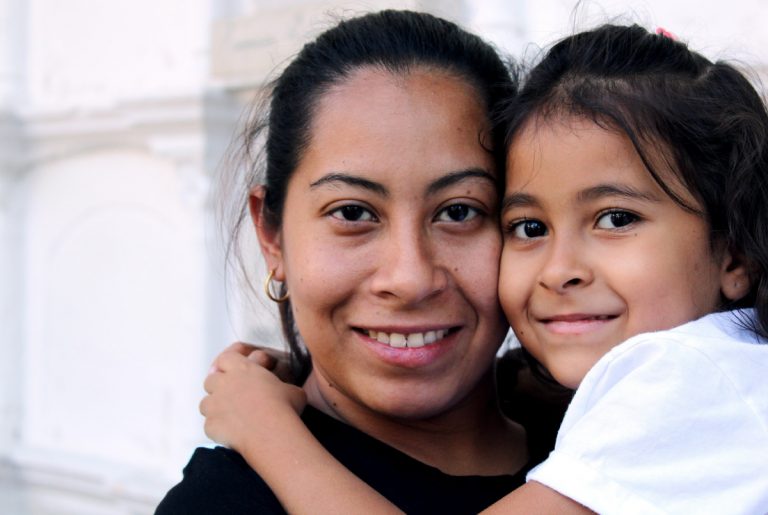Introducing your new partner to your family can be anxiety-inducing – and there’s even more at stake when they’re meeting your kids for the first time. While you might not be able to predict how your children will react, you do have some control over taking the process slow and steady, and prioritising your kids’ needs and safety ahead of anything else.
After a break-up, there’s no set timeframe for when you’ll be ready to move on and consider dating again. Whether you need more time before meeting someone new, or you’re ready to jump straight back into the dating game, it’s important to be mindful that your child might not be on the same page. It’s not uncommon for children to still be grieving the loss of their family unit and they can be impacted by separation-related stress – from changes to living conditions, routines or dealing with conflict between their parents.
While some children feel relief when their parents separate, most want their parents to reconcile. So they can feel hurt, jealous, betrayed, resentful, sad or even angry when their parents start – or want to start – dating again. To children, this may be when they realise that the separation is permanent, and it can create feelings of distress or sadness.
When should you introduce your child to a new partner?
There are a variety of factors you might want to consider before deciding whether it’s the right time for your child and partner to meet.
How long ago did the separation occur?
If you’ve separated recently, your child will most likely still be adjusting and grieving. Try to ensure enough time has passed, and let things settle down from your separation, before introducing a further significant change into your child’s life that may add to their feelings of overwhelm.
How long have you been with your new partner?
People don’t enter new relationships expecting or wanting them to end, but it’s important to consider how stable your new relationship is before you introduce your child to your partner. Exposing your child too early means you risk your child experiencing more grief, upheaval and stress – one loss after another. Try and wait until you know that this relationship has moved from dating to a more serious dynamic before you consider this introduction.
How does your child’s parent feel about the changes?
Yes, you might have separated from your child’s parent, but depending on how involved they are in your child’s life – and whether it’s safe to do so – you might need to consider how they feel about you introducing a new partner into the family.
Although it’s not up to them to decide when you are ready to re-partner or with whom, you might want to discuss how and when you will introduce your child to future partners. Their attitude can help or hinder how your child will respond to the situation. This can also be a helpful discussion for you as well, since your former partner will probably want to start dating at some point. Having clear boundaries and expectations you both agree on can reduce conflict or misunderstandings further down the track. Children also shouldn’t be put in the situation of informing their parent about your new partner.
How old is your child and what’s their temperament like?
Your child’s age, maturity and temperament will also need to be taken into consideration when (and how) you tell them about a new partner. You should consider what they’re able to understand and therefore how much information you disclose about dating or your new partner. You can also think about how flexible, adaptable and resilient they are when it comes to responding to new changes or arrangements.
5 tips to keep in mind when your child is meeting your new partner
- All feelings are valid. Let your child know that their feelings are normal – regardless of what they’re feeling. The more accepting you are of a wide range of feelings, the more likely they are to open up and share how they’re feeling and what they are thinking, so you can respond to this directly.
- Spend time with your child. Many children worry that a new partner will squeeze them out of the picture, so make sure they know they still have your time and attention. Before and after you introduce your new partner, continue to spend quality time with just them and help them feel included in your life.
- Go at your child’s pace. Before you introduce a new partner, have plenty of conversations. The type of conversation and the amount you share will depend on your child’s age and maturity. You could let them know you’ve met someone, explain why it’s important for you to have adult relationships and give them plenty of opportunities to ask questions.
- Take it slow and steady. Introduce them to your new partner slowly and start by meeting somewhere casual or neutral, like a park or playground. Start with shorter meetings and gradually build up the time you spend together.
- Manage expectations. Ensure that you, your child and your new partner all have realistic expectations. Explain that it’s important for them to respect one another, but avoid any pressure for them to feel like they have to love each other. That may come with time, but it needs to be natural.
Put your children first – always
While you’re probably feeling excited to meet someone new and join your lives together, a new partner can signal the finality of your previous family unit, which can be very challenging for your child. Throughout the process, give your children a chance to speak freely and honestly – but remember, it’s normal for them to have big feelings about the change. The best thing you can do is to be there for them and support them.
It might feel slow and laborious, but having patience will give the relationship between your new partner and child the opportunity to blossom as your family expands.
If your child is struggling to process changes, you might want to consider accessing counselling to help them adjust. We provide services to support families through challenging times, including Family Counselling, Adolescent Family Counselling as well as parent programs such as Parenting After Separation.
Related Services & Workshops

Group Workshops.Families.Parenting
Parenting After Separation
Managing a difficult relationship with a former partner can be difficult, especially when kids are involved. This group offers tools to improve communication, reduce conflict and make decisions in the best interests of your kids.

Counselling.Families.Life Transition
Family Counselling
Our trained and compassionate family therapists provide Family Counselling services online and in-person throughout NSW. Family Counselling provides a safe space to address problems, hear each other’s perspectives, overcome difficulties, improve communication, and restore and strengthen relationships.

Counselling.Families.Mental Health
Adolescent Family Counselling
The teenage years can feel like an emotional minefield – and knowing how to support an adolescent can seem equally as daunting. Adolescent Family Counselling aims to restore and repair relationships by providing strategies to support teens and their families through significant life changes.






